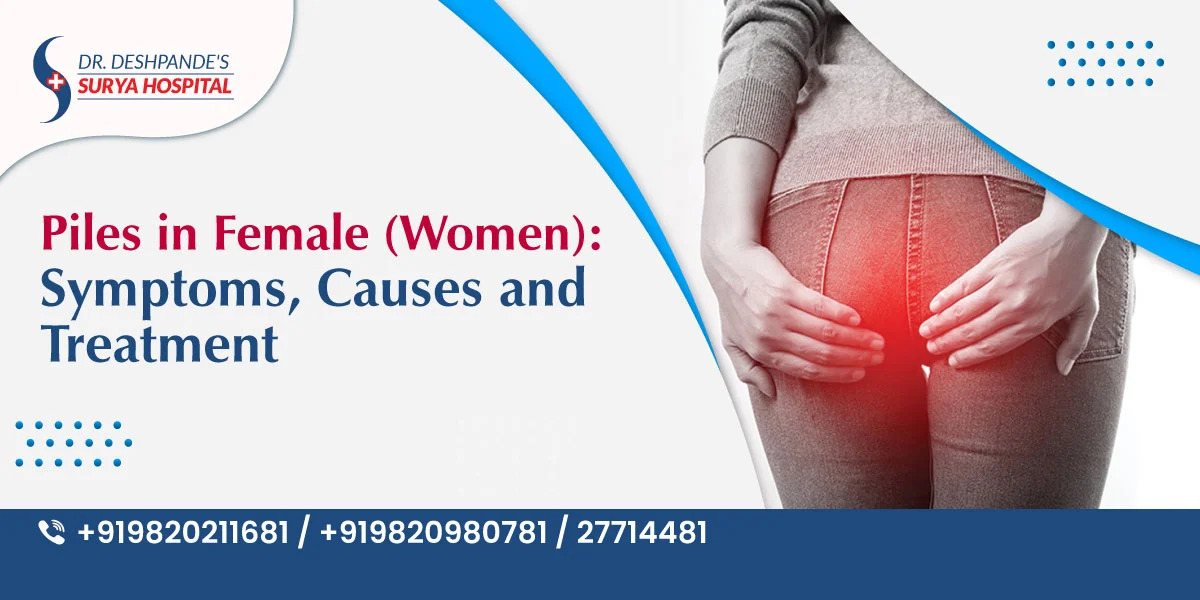Also called hemorrhoids, piles are the inflamed veins in and around the rectum and anus. The condition is quite painful and often leads to rectal bleeding. Anyone can get hemorrhoids, although pregnant women are at an increased risk. These rectal veins can swell due to the increased pressure, especially in people who struggle with constipation. It can be treated with topicals and oral medication, but in some cases, pile surgery in Nerul is required. It’s best to see your healthcare provider. They will assess your condition and determine the most suitable treatment for piles.
Causes of Piles in Female
Piles are the swollen veins around your rectum caused by excessive straining or the enlargement or bulging of these veins due to other reasons. Here’s what causes piles in women:
- Pregnancy
- A diet low in fiber
- Chronic constipation
- Straining when pooping
- Heavy lifting
Some people are at increased risk of developing piles, including elders, obese, and those living a sedentary lifestyle and following a poor diet.
Symptoms of Piles
Piles are categorized into two types—internal and external. Internal piles barely cause any symptoms until they prolapse. External hemorrhoids, which form beneath your anal skin, can produce symptoms. Here is what you might experience:
- Blood in your poop, toilet paper, or in your undergarments (rectal bleeding)
- Lumps around your anal opening
- Pain around the anal, especially when you sit
- Constant itchiness, swelling, and discomfort around the anus
Hemorrhoids can be felt bulging outside your anal opening, i.e., if they have prolapsed. They can cause extreme pain and discomfort.
Piles During Pregnancy
Many women report piles during pregnancy and shortly after childbirth. These look like varicose veins that have swollen because of the increased pressure in your pelvic muscles, frequent episodes of constipation, and hormonal changes in your body. Increased blood volume during pregnancy is also blamed for the painful hemorrhoids.
This usually occurs during the third trimester but can happen at any time. Hemorrhoids mostly occur because of constipation, which is caused by changing hormones, prolonged sitting, a low-fiber diet, and taking iron supplements. Fortunately, pregnancy-induced hemorrhoids go away on their own after childbirth. However, you must see a piles surgeon in Nerul if the issue persists.
Treatment for Piles
Some home remedies can help relieve your piles symptoms. For instance, adding more fiber-rich foods to your diet, taking a sits bath, avoiding prolonged sitting, and increasing your fluid intake are a few ways to improve your symptoms.
Pain-relief medications, such as ibuprofen, can relieve the pain associated with prolapsed hemorrhoids. If it’s caused by constipation, take stool softeners and laxatives. The more you strain when pooping, the higher the risk of developing piles. Your healthcare provider might also recommend certain ointments to reduce inflammation around the enlarged veins.
Piles Surgery In Navi Mumbai
Surgical Treatment
Sclerotherapy involves injecting medication into hemorrhoids that makes them shrink and eventually fall off. Infrared coagulation is another procedure in which the doctor burns the affected tissues with infrared light. If nothing works, hemorrhoidectomy is your last resort. It requires the complete removal of hemorrhoid tissues.








